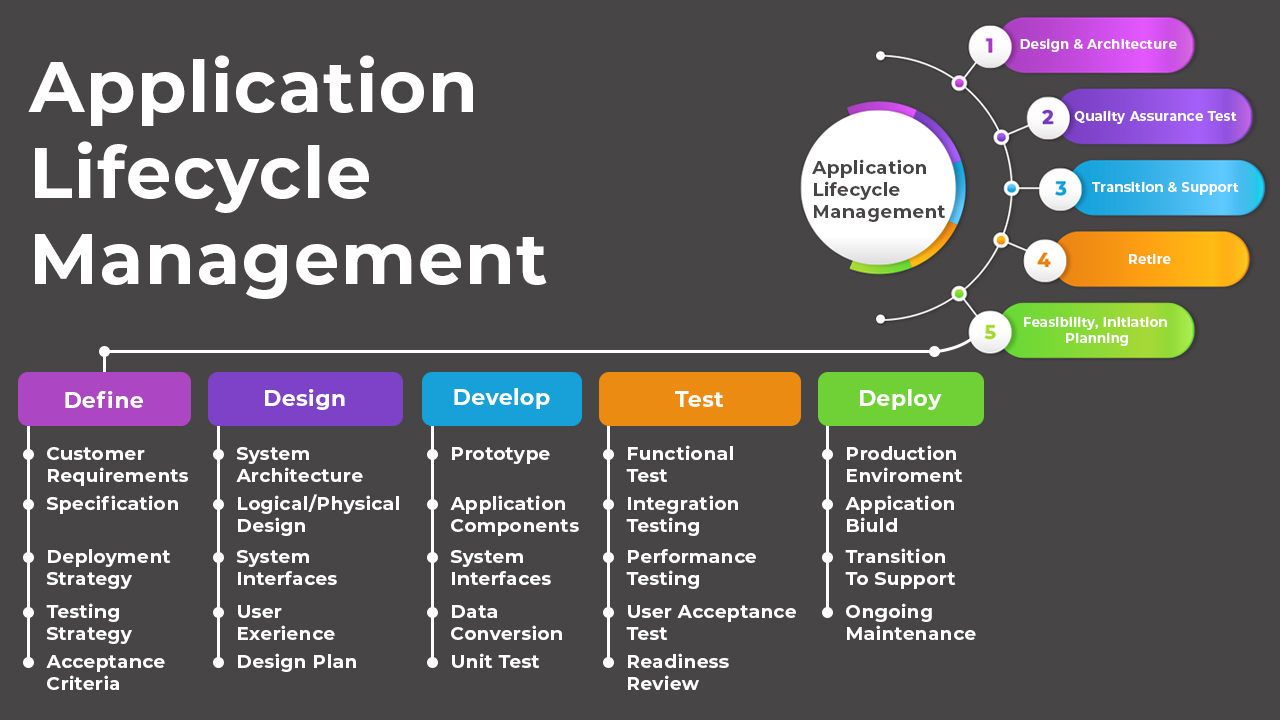ALM, Application Lifecycle Management refers to the capability to integrate, coordinate and manage the different phases of the software delivery process. From development to deployment, ALM is a set of defined processes and tools that include definition, design, development, testing, deployment, and management. Throughout the ALM process, each of these steps is closely monitored and controlled.
ALM platform will have modules to support the management of different phases of application development life cycle with integration facility with other market popular tools if needed by customers at different stages. The key phases require simplicity in usage, optimization to reduce time & effort, and flexibility to adapt to different situations. If the platform supports all phases and imports of existing assets provided as features the chances of full usage of ALM platform features are very high.
Requirement Management: Here the expectation is to track strategic top-level requirements like a business road map to release stage linked. This is managed differently in different enterprises some follow Initiative, Feature, and then user stories as three layers of requirements and some follow portfolio goals and project requirements. Users definitely will look for defining, maintaining, and tracking the progress of each layer till the end.
Release Management: Here the expectation is to define a high-level road map as a release plan which is a strategic and toll operational plan like a sprint/iteration plan with resources allocated and budgeted as accurately as possible.
Project and Test Management: Here the expectation is to divide team member tasks to as low as 12-16 hrs and assigned the m to members member with the provision to update status regularly. Features like alerting resooverloadingading and resource under utilization etc. are welcome so that necessary corrective actions are initiated. The main focus is also quality of release which nowadays days as a thorough automated regression test apart from standard test phases which are also automated to the extent possible. With speed, quality, and cost-focused delivery goals, test automation feature integration is very key for ALM to succeed.
Defect Management: Here expectation is managing the defect life cycle to ensure every component of the solution has the same goal for release criteria. Many times at leadership team review, there is a demand for slides or reports traced from strategic initiative to open defect stage to take a good decision required for business. RTM - requirement traceability plays a key role in ALM platforms.
In this new age, people are moving towards DevOps implementation where operations drive the release definition once the solution ion in the field and automated tests, automated deployment, and automated roll-back all are welcome features of ALM. Therefore expectation to support the above-automated stages integration of the right tools in use by the organization makes the ALM platform more suited for enterprises.

